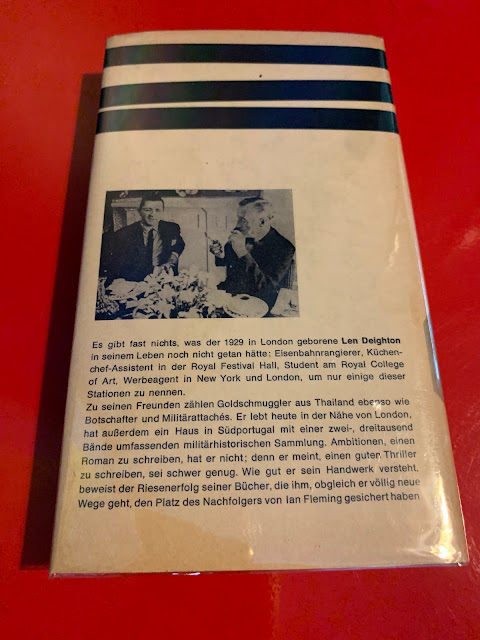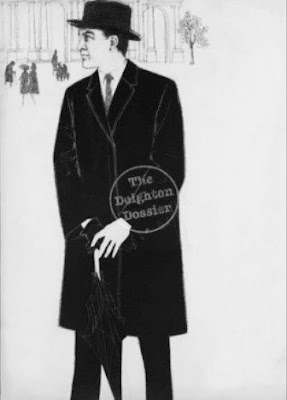 |
The inevitable snowflake!
|
Any collector of first edition or out-of-print books might think their hobby is immune to the ravages of the "culture wars" which are infecting the body politics on both sides of the Atlantic.
Far from it.
As this interesting article in the UK"s Spiked magazine shows, the simple act of collecting an old or out of print edition of a book is now a radical political act, on a par with the publication of samizdat editions of books in the old Soviet Union.
Sure, the author exaggerates a little to make a point. But it does highlight concerns I and other collectors have about the growing readiness of publishers to revise new editions of established works - often using the services of the delightfully termed 'sensitivity reader' - and excise from them any sort of "problematic" wording.
Problematic to whom? Who declares it a problem? Is this agreed by everybody? Is it a genuine assessment, or the opinion of some fruitcake with a Twitter handle?
I hate the word "problematic".
It's so mealy-mouthed, and redolent of much of the official corporate jargon that's now a feature of publishing, as well as other industries, for which the risk of offending somebody or some online group now takes precedence over, well, the integrity of the novel, of art, of history.
This is a new phenomenon - the whole sensitivity industry (for that's what it is) has grown up maybe in just the last decade. But it is affecting many authors that readers of this blog will be familiar with.
Roald Dahl's children's books are a famous victim of this seemingly benign, but in truth dangerous trend to - literally - rewrite the past.
In the world of spy fiction, Ian Fleming's novels are now undergoing the same treatment, to remove some of the so-called 'problematic' references which the publisher is worried about.
In both those (and other) instances, the novelist has passed away and their estates - charged with looking after the interests of the author's works - are, seemingly, happy to go along with this.
The judgement must be that today's readers, growing up in a society where everything offends someone, should be pandered to; and you can perhaps see a commercial case for doing so. Why risk a Twitter 'pile-on' and put sales under threat.
But, it's such a cowardly act, I think, not least because it changes the author's words, often without their permission.
Should we repaint the Last Supper because it is insufficiently diverse? Should Wagner's operas be expunged of any notes that might hint at German nationalism? Do we change the lyrics of 'Dear God' by XTC because the religiously minded don't like it?
Where does it stop? And who decides?
The author, I think, must be the arbiter.
To my knowledge, in the most recent Penguin reissues of Len Deighton's novels, there have been no edits or excisions prompted by sensitivity readers.
That may be because, although they are written in the sixties, seventies and eighties and nineties, they are not replete with egregious examples of racism, sexism or any other -ism you can think of.
Sure, there are a few words and characters which a sensitivity reader might baulk at; but, having read most of the novels at least a couple of times, to me these words - auxiliary though they may be - are just as important as any of the key passages or bits of dialogue.
They were chosen by the author.
And as a reader, I want to read what the author wrote. I don't want to read what someone thinks I should read.
The question here is one of integrity.
Any book, by its very nature, is of its time, and so will also reflect the sensibilities and language of its time. And to that extent, I can see perhaps the sense of adding a publishers' note in the end papers advising readers of that fact. It's merely a guide, a sop to the more sensitive reader, that leaves the book unsullied
But change the language?
That feels like a step too far. Any novel represents the author's vision and story, and language and description and dialogue is integral to that. Changing one word, one sentence, one paragraph, or a character's name or description, undermines that cohesive vision.
There's often a reason an author may have used a racial slur in a book, or gave a character a certain character trait, or presented a character with a physical difficulty. We don't know that reason - and nor should we - so it's not for us to second guess why it's there.
But it is there, and it should remain there. We can acknowledge it; comment on it; wince at it. But, change it?
If you're offended by it, well, don't read the book; or, just put the book to one side.
To push for having the book altered to suit your own sensibilities or that of a certain group in society seems utterly selfish and self-important.
So, going back to the original article's point, I am, evidently, now a radical.
I don't feel like one. But I understand the (incredibly minor) role I play as a collector in keeping reality, and truth, and artistic integrity alive.
Indeed, I also have a full collection of Spike Milligan's works - loved by children and adults alike but, in their subversiveness and (in the case of his war memoirs) unexpurgated frankness, they are ripe for the sensitivity readers chopping block.
Same with my Tintin first editions.
Much of their contents would make the average Gen-Z aploplectic. But, I enjoy them, nonetheless.
By keeping them on my shelves, and perhaps in future passing them on to someone else or selling them through a dealer, I feel some solace that I am undertaking an entirely passive, but revolutionary act, in the name of truth and reality, during this current period of cultural perturbation.
As if I needed another reason to keep my collection safe, and growing!
What do you think?


























